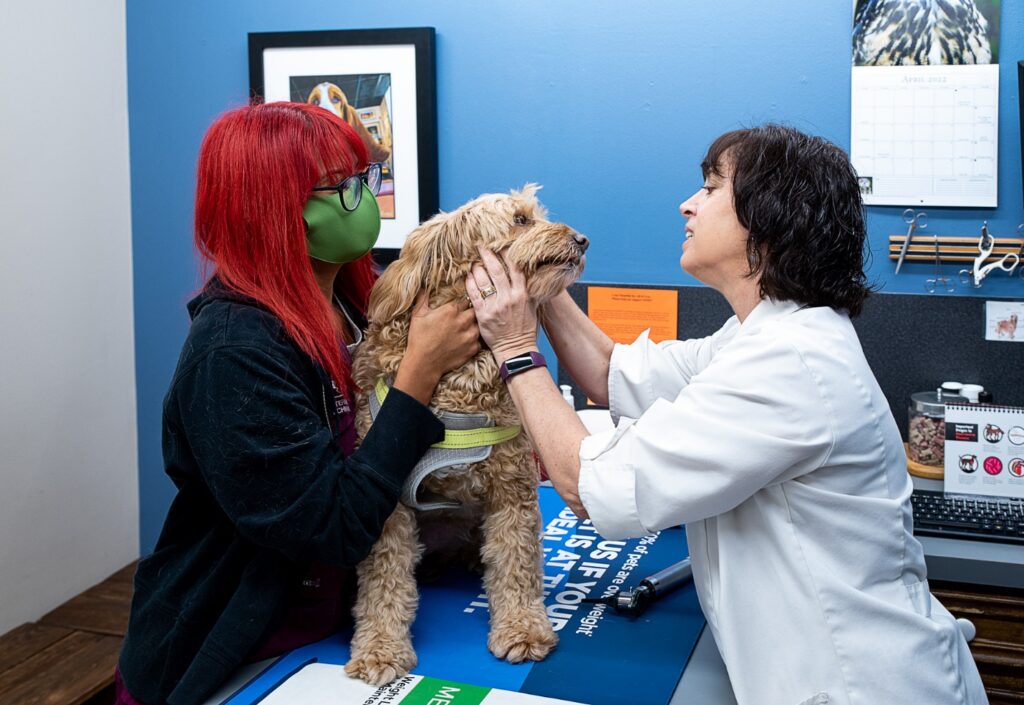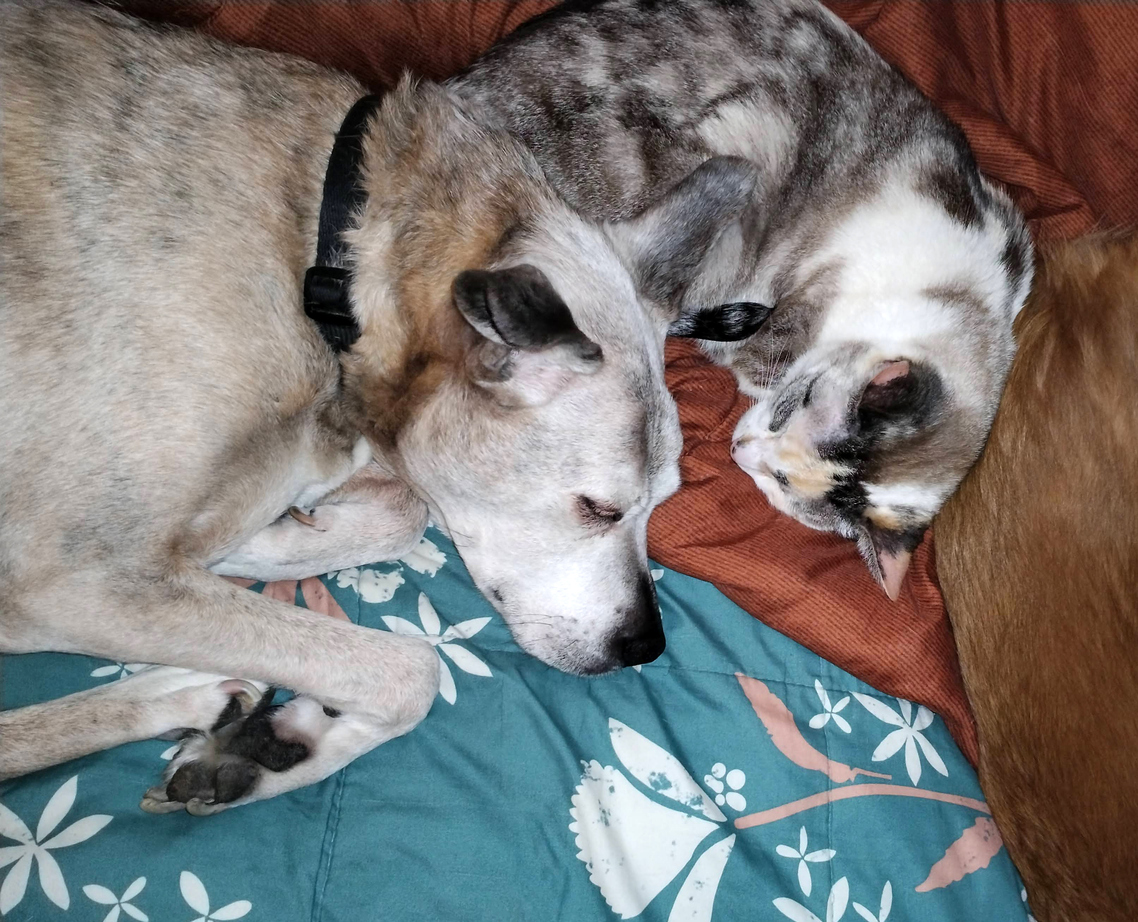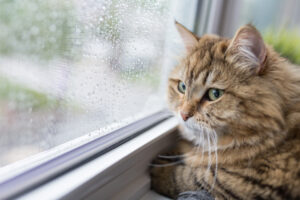As pets grow older, they require specialized care to maintain their health and happiness. At Braescroft Animal Clinic in Houston, we believe that with proper care, senior pets can enjoy a high quality of life well into their golden years. Here, we provide essential senior pet wellness tips to keep your beloved companions feeling their best.
Understanding Senior Pet Wellness: It is More Than Just Age
The term “senior” can mean different things depending on your pet’s species and breed. For example, small dogs and cats may reach their senior stage at age 9 or 10, while larger dogs may enter this stage as early as six. Small and medium rabbits are elderly at 6-8 years old, while large, giant, and dwarf breeds reach this stage by 4 years old. It is crucial to recognize the signs of aging and adjust your pet’s care accordingly to ensure they stay active, healthy, and comfortable.
Signs of Aging in Pets
Recognizing the signs of aging is an important part of senior pet wellness. While each pet ages differently, there are common changes you can watch for that may indicate your pet is entering their senior years:
- Reduced mobility: You may notice your pet has difficulty getting up, climbing stairs, or jumping onto furniture.
- Changes in vision or hearing: Aging pets often experience diminished senses, such as cloudy eyes or not responding to sounds as they used to.
- Weight changes: Sudden weight loss or gain may indicate underlying health issues, such as thyroid problems, diabetes, or other age-related conditions.
- Behavioral changes: Some senior pets may become anxious, sleep more often, or sometimes seem confused.
- Incontinence: Senior pets may begin to have accidents indoors due to weakened bladder control or other health concerns.
- Lumps or bumps: It is common for older pets to develop growths, which a vet should monitor to ensure they are benign (non-cancerous).
Important Note: If you notice sudden changes in your pet’s health—such as a loss of appetite, weight changes, or behavioral shifts—these could signal serious, potentially life-threatening conditions. It is crucial to contact your veterinarian immediately for a thorough evaluation and appropriate care.
Key Senior Pet Wellness Tips

1. Prioritize Preventive Care for Senior Pet Wellness
Regular veterinary visits are critical for senior pets. We recommend biannual wellness exams to catch potential health issues before they become serious. Conditions like kidney disease, diabetes, or arthritis may not show obvious signs initially, so preventive care is essential to your pet’s overall well-being. Our hospital provides various in-house diagnostic tests using the most state-of-the-art technology available. Our goal is to provide your pet with the highest care possible, and our diagnostic tools help us do that.
2. Nutrition’s Role in Senior Pet Wellness
Senior pets need tailored diets to maintain energy levels and manage weight-related issues. Overfeeding can lead to obesity, which is particularly dangerous for senior pets as it worsens joint pain and can lead to diabetes. Talk to our veterinary team about customized nutrition plans that meet your pet’s specific needs, whether a low-calorie diet for weight management or a nutrient-rich formula to support overall health.
3. Low-Impact Exercises for Senior Pets
While senior pets may slow down, regular exercise is crucial to maintaining mobility and preventing muscle atrophy. Activities like short walks, gentle playtime, or even swimming can help keep their joints flexible and muscles strong. We will help you design an exercise routine appropriate for your pet’s condition and age.
4. Ensure Dental Health to Support Senior Pet Wellness
Did you know that dental disease is one of the most common health problems in senior pets? If left untreated, these patients are at an increased risk for developing heart valve disease and kidney disease. Establishing good oral hygiene habits for your pet is essential in battling periodontal (dental) disease. Dogs and cats also cannot tell us when their mouth hurts. They often stop eating when they need dental care. Routine dental checkups and at-home care, such as brushing or providing dental chews, can prevent oral health problems from escalating.
5. Adjust Your Home for Senior Pet Comfort

As your pet ages, minor modifications around the home can improve their comfort:
- Consider adjustments like pet ramps, comfortable bedding, and keeping their favorite areas accessible.
- Vision or hearing loss can also be challenging, so create a consistent, safe environment that minimizes stress. Avoid moving furniture or adding new things into their environment. Use sound cues, like a water fountain, to help pets find water, and use squeaky or other noise-making toys for play.
- Vocalizing your actions: Speak to your pet while you perform activities around them, like saying, “I’m going to feed you now” or “We are going for a walk.” Using your voice helps pets with diminished senses stay aware of what is happening, reducing potential anxiety or confusion.
- Use scent to enhance games like fetch or hide-and-seek, and to help your pet identify key areas, such as feeding and resting spots.
Supporting Your Senior Pet’s Mental Health
Mental stimulation is just as important as physical health for senior pets. Providing new toys, teaching them simple tricks, or offering puzzle feeders can help keep their minds sharp. In some cases, pets may experience cognitive dysfunction syndrome (CDS), a condition similar to dementia. Signs of CDS include disorientation, changes in sleep patterns, and decreased interaction. While there is no cure, keeping their brain engaged and working with our team to manage symptoms can improve their quality of life.
Final Words: Caring for Your Aging Companion
Caring for a senior pet requires extra attention, but the reward is knowing you provide them with a comfortable, happy life as they age. From preventive care to ensuring mental and physical well-being, there is so much you can do to support your pet’s journey through their senior years. If it is time for your pet’s next wellness exam, contact Braescroft Animal Clinic to schedule an appointment today.

Your Compassionate Team
Braescroft Animal Clinic
(713) 721-8081




